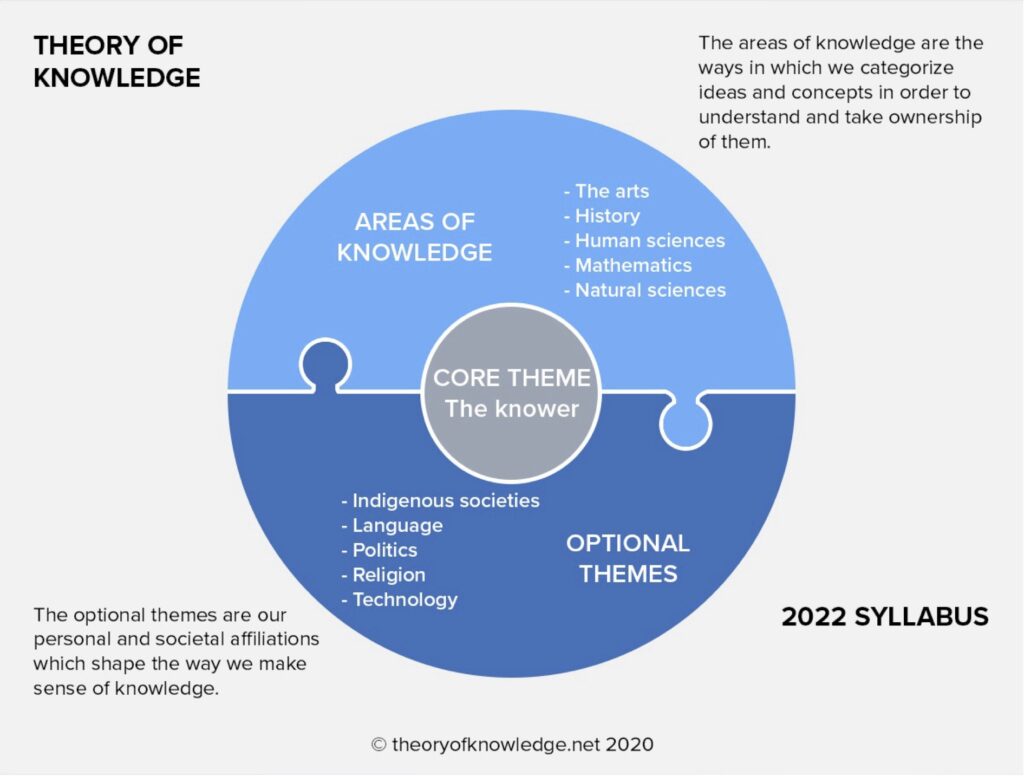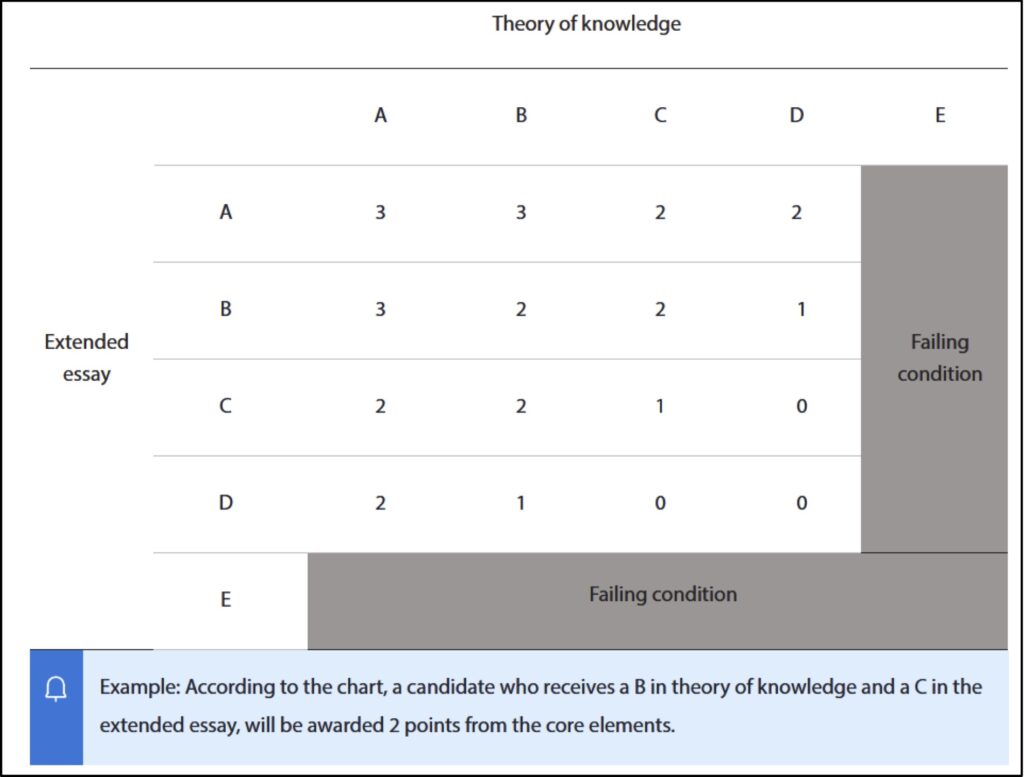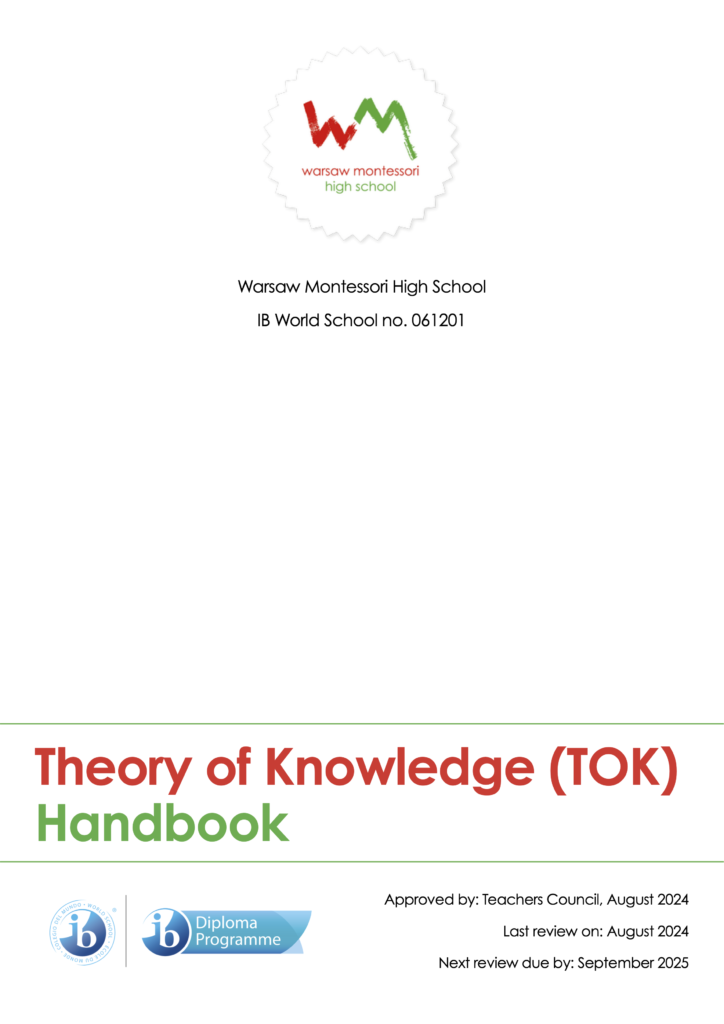TOK
Theory of Knowledge – the power of critical thinking and reflection
The Theory of Knowledge (TOK) course provides students with an opportunity to explore and reflect on the nature of knowledge and the process of knowing. It is a core element of the IB Diploma Programme to which schools are required to devote at least 100 hours of class time.
This subject encourages critical thinking and philosophical inquiry, pushing students to question and analyse the foundations and limits of their own understanding. The course is designed to be interdisciplinary, encouraging students to make connections between academic subjects and real-world issues.
The course centres on the exploration of knowledge questions, which are a key tool for both teachers and students.
These are contestable questions about knowledge itself, such as:
What counts as good evidence for a claim?
Are some types of knowledge less open to interpretation than others?
What constraints should there be on the pursuit of knowledge?
TOK, at its core, confronts the students with a question:
How do we know what we claim we know?
Course structure
The TOK curriculum is made up of three deeply interconnected parts.
- The core theme – Knowledge and the Knower
This theme encourages students to reflect on themselves as knowers and thinkers, and to consider the different communities of knowers to which we belong.
- Optional themes
This element provides an opportunity to take a more in-depth look at two themes of particular interest to teachers and students. The given themes all have a significant impact on the world today and play a key role in shaping people’s perspectives and identities. Teachers select two optional themes from a choice of five: knowledge and technology; knowledge and language; knowledge and politics; knowledge and religion; and knowledge and indigenous societies.
- Areas of knowledge
The areas of knowledge (AOK) are specific branches of knowledge, each of which can be seen to have a distinct nature and sometimes use different methods of gaining knowledge. In TOK, students explore five compulsory areas of knowledge: history, the human sciences, the natural sciences, mathematics, and the arts.
To help students explore these three parts of the TOK curriculum, guidance and suggested knowledge questions are provided. These suggested knowledge questions are organised into a framework of four elements: scope, perspectives, methods and tools, and ethics.
This “knowledge framework” encourages a deep exploration of each theme and AOK. Having these common elements run throughout the different parts of the curriculum also helps to unify the course and helps students to make effective connections and comparisons across the different themes and areas of knowledge.

Course assessment
There are two assessment tasks in the TOK course:
- The TOK exhibition assesses the ability of the student to show how TOK manifests in the world around us. The exhibition is an internal assessment component; it is marked by the teacher and is externally moderated by the IB.
- The TOK essay engages students in a more formal and sustained piece of writing in response to a title focused on the areas of knowledge. The essay is an external assessment component; it is marked by IB examiners. The essay must be a maximum of 1,600 words and must be on one of the six prescribed titles issued by the IB for each examination session.
Core points matrix
For TOK and the Extended Essay (EE), candidates receive a grade from A to E. Candidates can earn between zero and three points towards the overall diploma points. The number of points is calculated using the table below.

WMHS TOK Handbook
If you are interested in more details related to TOK and the way it is taught in Warsaw Montessori High School, please read WMHS TOK Handbook.

More information
You can get more information on Theory of Knowledge by visiting IBO website:


